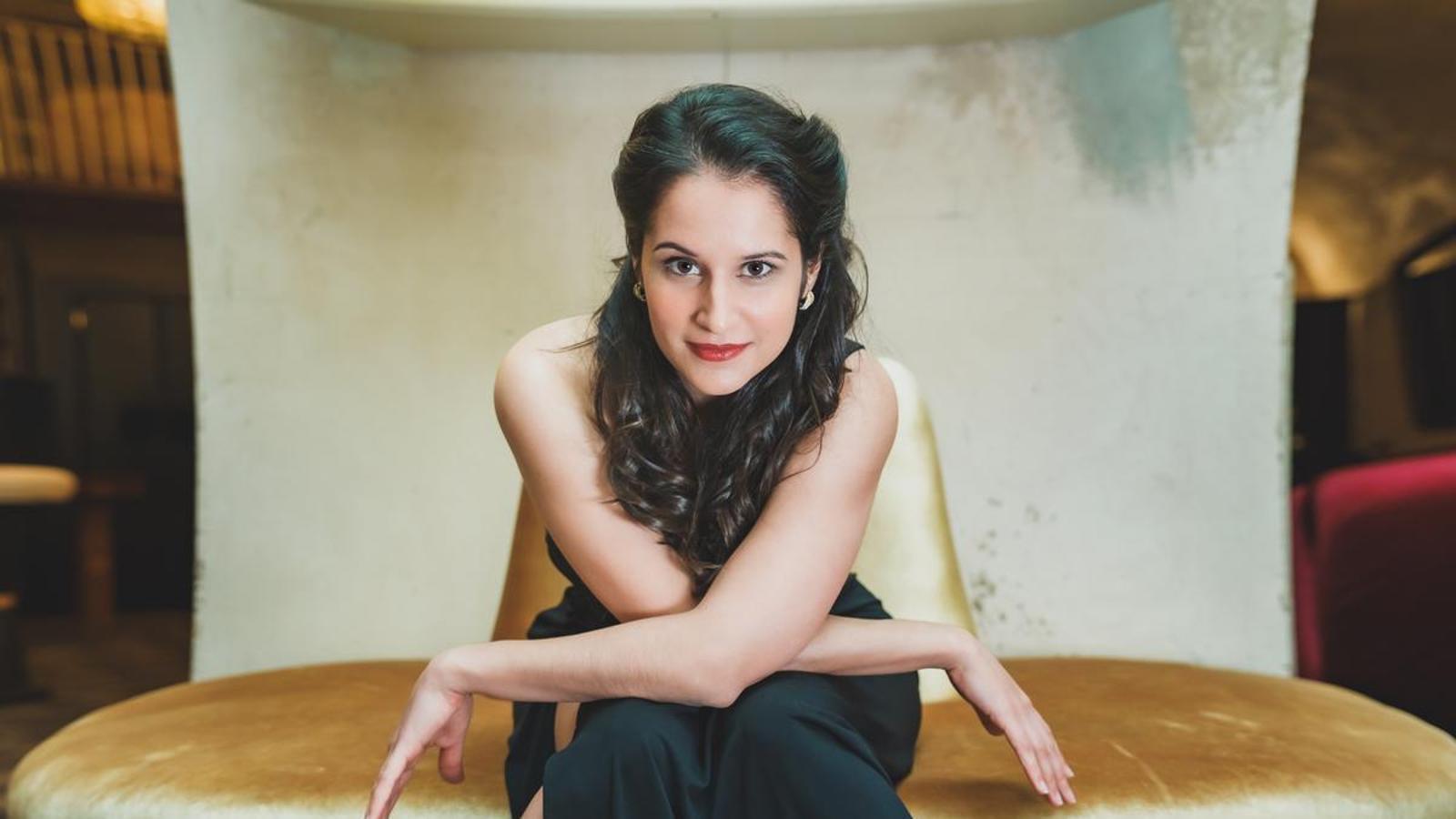Sara Blanch: "In a world that moves so fast, opera has a medicinal effect."
Soprano. She makes her debut at the Vilabertran Schubertíade on August 19.


GironaSara Blanch is one of the most prominent Catalan opera singers of today. Born in Darmós, a small town in the Ribera d'Ebre region, at just 36 years old she has become a regular soloist in the Gran Teatro del Liceo seasons. She has already performed on major international stages and has established herself everywhere as a great interpreter of the opera. bel canto Italian. A light lyric soprano with a great gift for the high notes and coloratura, combined with an absolute command of expressiveness and nuances, she will debut at the Vilabertran Schubertiad, one of the most important lied competitions in Europe, next Tuesday, August 19, with a recital of works by German composers. After a summer full of high-flying engagements, the 2025-26 season begins in just a few weeks, once again full of stimulating appointments, with premieres at the Royal Opera House in London, the Paris Opera and La Scala in Milan, in addition to the return to the Liceu, in June, with Le nozze di Figaro.
How are you approaching your debut at the Schubertíade?
— It's a date I'm really looking forward to. I have to thank Victor Medem [Artistic Director of the Schubertiade until this year's edition] because if it weren't for him, this concert wouldn't happen. He made me see that my voice could fit very well with that repertoire. I had already worked on it at the conservatory, when I was a student, but in concert, until now, I had only performed French, Catalan, and Italian songs, but not German lied. Medem has given me the opportunity to delve into this truly rich and precious repertoire and open a door that I trust will continue.
The program features lieds by Schubert, Strauss, Wolff, and Mahler. How do these pieces differ from the opera titles you usually sing?
— Each composer in the program has their own unique language, but, in general, the lied always stands out for the importance of expressiveness, communicating with the voice, and being able to play with colors. In a lied or a song, the setting is much more intimate than in opera, where there are larger elements, such as the stage,props, the locker room... and the audience is at a distance.
At the Vilabertran Canonry, however, the front rows are very close together.
— Exactly, the atmosphere is more intimate. Perhaps the voice doesn't have the pyrotechnics, the high notes, and the high notes of some operas, but it does have the importance of the delivery and communication. As a performer, I try to find colors to tell the story of the text. Each individual song is like an entire opera, because in each song you are a different character, you must tell a different story, and from one to the next you have to very quickly change emotion and intention.
Now he comes from triumphing with the opera Mithridates by Mozart at the prestigious Salzburg Festival. What was the experience like?
— It's the first time I've sung an entire opera. And it just so happens to be the only Mozart opera scheduled this summer, so singing Mozart in his hometown is a tremendous privilege. And doing it with musicians who are so familiar with that language is a real pleasure.
The new school year, in addition to traveling to London, Paris, and Milan, will return to the Liceu. What does it mean to sing for another year at the Barcelona theater?
— It's very important because it's the theater of one's home. Being able to work where you live is essential, and seeing that in Barcelona we have a theater like the Liceu, but also the Palau de la Música Catalana and L'Auditori, makes me feel like the city works.
Do you think it's necessary for our country's opera houses to invest in the talent of local singers?
— Absolutely. Sometimes it seems like being from your country has less value and that singing abroad gives you greater importance. But there are countries like France that have their singers sing before anyone else, and then the foreigners come in. I think we should give work to homegrown singers first. Of course, as long as they're worthy and have worked hard for it.
Is there less interest in opera in Catalonia and Spain than in other leading European countries?
— It's true that we keep in mind that countries like Germany and Austria have a very extensive programming. There, people of all ages are accustomed to going to the theater, and music is at the heart of education. But we're not doing so badly here either: Madrid's Teatro Real and the Liceo schedule many performances of the same title over weeks, more so than in those countries, and they fill up. Projects are also being carried out to attract young people, and they're working. We shouldn't assume that opera isn't popular or that it won't be popular, but rather give the public the opportunity to go, and then people respond.
What would you say to someone who has never been to the opera to seduce them?
— Opera gives you a depth and a different dimension that reaches directly to your soul; it has a medicinal effect. In a world where everything moves and is consumed so quickly, it can make you connect with yourself in a different way. Every opera has its own interest and there are ones for all tastes, but there are many ideal titles to start with, such as Rigoletto, La traviata, The Italian in Algeria, or, for example, the same Le nozze di Figaro, which we will sing in June at the Liceu.
